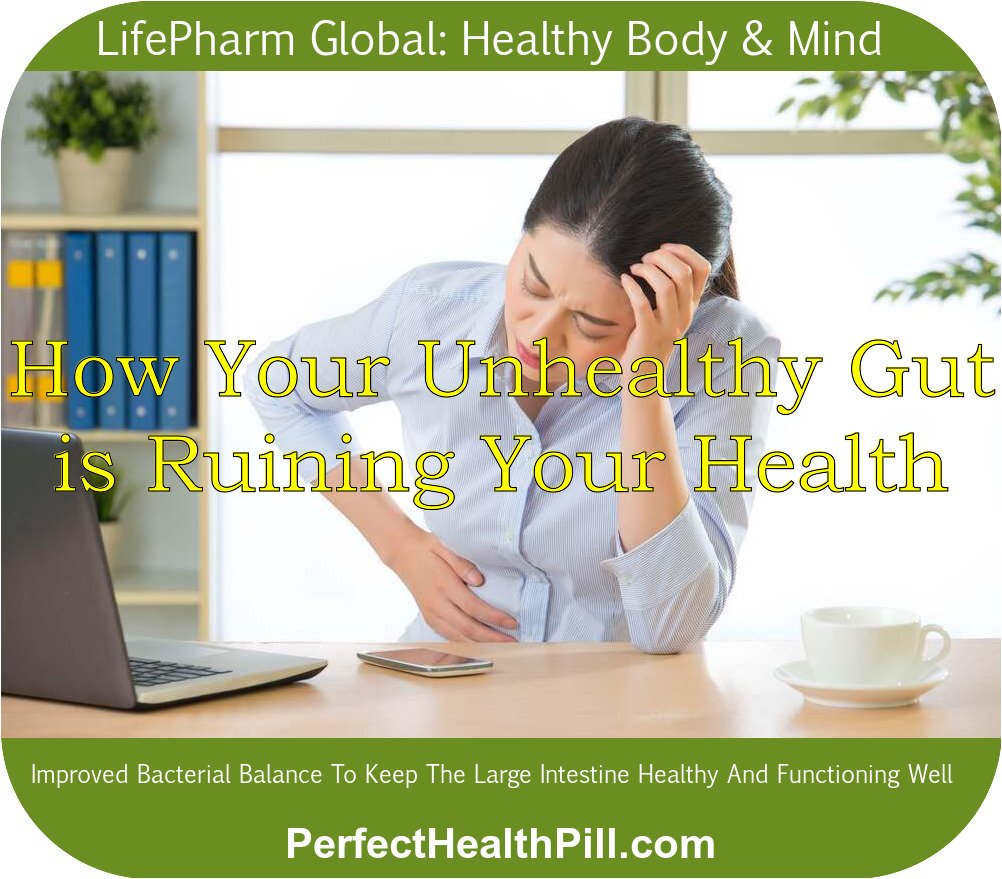
- Energy absorption
- Gut motility
- Appetite
- Glucose and lipid metabolism
- Fat storage in the liver
The gut includes the entire gastrointestinal tract (GI tract) and there are steps you can take to give your GI tract the best resources possible for optimal functioning.
One of the easiest steps to ensure a healthy GI tract is to include prebiotics and probiotics in your diet. Whether through supplements or food, prebiotics and probiotics provide the gut with the reinforcement it needs to keep your gut healthy.
What Are Probiotics?
Probiotics are living strains of bacteria, and consuming probiotics increases the number of good bacteria in your digestive system. Probiotics help improve the gut microbiota. The microbiota comprises several microorganisms throughout the GI tract, including the bacteria created by consuming probiotics. This gut microbiota helps energize the body , absorb nutrients, and support the immune system.
What Are Prebiotics?
Microbiologists define a true prebiotic as an ingredient:
- That is proven to bypass digestion and reach the colon intact.
- That stimulates the growth of types of bacteria shown to improve health positively.
- Two common beneficial microbes produced by prebiotics are lactobacilli and bifidobacteria.
- Fructooligosaccharides reach the colon and are true prebiotics by stimulating the growth of beneficial microbes in the colon.
Prebiotics can be considered the food source for the microorganisms in the gut microbiota. Prebiotics gets broken down, and short-chain fatty acids are created. These short-chain fatty acids help with mucus production, inflammation, and immunity and provide colon cells with energy. The process of prebiotics being metabolized and fermented is important because a variety of other byproducts are created that help your body in several ways.
Balancing Probiotics and Prebiotics
An infection is often due to an imbalance between good and harmful bacteria, which makes it important to have solid gut health to give your body the right tools to fight the infection and harmful bacteria. As a reminder, prebiotics feed and energize probiotics, so when you’re sick and fighting off a disease, you want to be prepared on all fronts, even on a microbial level. Prebiotics and probiotics are essential for battling infections .
Probiotics and prebiotics are also beneficial with antibiotics, a medicine that rids the body of infection-causing bacteria. But antibiotics also clear the body of the good bacteria, so taking probiotics and prebiotics during or after a round of antibiotics, it can help the body replenish the good bacteria in your body and Improve Gut Health.
Adding Probiotics and Prebiotics to Your Diet
To add probiotics and prebiotics to your diet, you must first understand what boxes a food must check to be considered a probiotic. The microbe must survive the stomach acid and bile, the intestines, and make its way to the colon and survive there. A prebiotic also needs to survive the digestive journey to the colon, where they are fermented and metabolized to survive.
Foods that contain Probiotics:
- Miso soup
- Sauerkraut
- Kimchi
- Kombucha
- Kefir (dairy and nondairy)
- Pickled vegetables
Foods that contain Prebiotics:
- Bananas
- Onions
- Garlic
- Berries
- Beans
- Peas
- Oats
- Asparagus
- Dandelion greens
Add Prebiotics & Probiotics Through DIGESTIVE+++
There are a lot of different prebiotic supplements on the market, but it is crucial to choose the right ones for maximum results. Microbes used in most probiotic dietary supplements are very fragile, meaning that only a tiny percentage of the microbes are alive at the end of their shelf life. Many species of microbes in dietary supplements need to be freeze-dried and specially processed to keep them viable during handling and storage and to help maintain their usability in the intestines.
DIGESTIVE+++ contains the active microbe Bacillus Coagulans, which is stable at room temperature and remains viable during handling and for the duration of its shelf life. Studies showed Bacillus Coagulans leaves the GI tract seven days after ingestion, which makes it essential to take DIGESTIVE+++ continuously.
Another reason to add DIGESTIVE+++ to your diet is that probiotics are usually dead by the time they enter your gut if they aren’t stored in the refrigerator or if they aren’t activated by prebiotics. By adding DIGESTIVE+++ to your diet, you can activate the probiotics and get the maximum effect by having the prebiotics and probiotics work together.
DIGESTIVE+++ also contains a full range of basic enzymes, which help your body break down food after eating. The blend in DIGESTIVE+++ contains enzymes that break down proteins, carbohydrates, and fats. Proper digestion is one of the most important things your body can accomplish. DIGESTIVE+++ will help you.
Over the last 15 years, microbiologists have performed studies determining additional, essential functions of beneficial microbes and prebiotic foods. This symbiotic partnership between our bodies and an optimal microbial ecosystem may help support proper weight management and metabolism. A healthy gut is the key to overall health, so start taking care of your gut health and get your DIGESTIVE+++ today!


